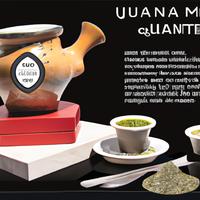
1 serving (240 grams) contains 5 calories, 0.0 grams of protein, 0.0 grams of fat, and 1.0 grams of carbohydrates.

Log this food in SnapCalorie

Nutrition Information
Calories |
5.0 | ||
|---|---|---|---|
% Daily Value* |
|||
| Total Fat | 0 g | 0% | |
| Saturated Fat | 0 g | 0% | |
| Polyunsaturated Fat | 0 g | ||
| Cholesterol | 0 mg | 0% | |
| Sodium | 0 mg | 0% | |
| Total Carbohydrates | 1.0 g | 0% | |
| Dietary Fiber | 0 g | 0% | |
| Sugars | 0 g | ||
| protein | 0 g | 0% | |
| Vitamin D | 0 mcg | 0% | |
| Calcium | 0 mg | 0% | |
| Iron | 0.1 mg | 0% | |
| Potassium | 27 mg | 0% | |
* Percent Daily Values are based on a 2,000 calorie diet. Your daily values may be higher or lower depending on your calorie needs.
Food Attributes
Source of Calories
About Yerba matte
Yerba mate is a traditional South American beverage made from the dried leaves of the yerba mate plant (Ilex paraguariensis). Popular in countries like Argentina, Uruguay, Paraguay, and Brazil, it is typically brewed as a tea and enjoyed in a shared gourd with a metal straw. Rich in antioxidants, vitamins, and minerals, yerba mate contains caffeine, theobromine, and polyphenols, providing natural energy and mental focus. It's also credited with supporting digestion and heart health due to its anti-inflammatory properties. However, like most caffeinated drinks, overconsumption may lead to jitteriness, insomnia, or dependency. Yerba mate can be a healthy alternative to coffee, offering a smoother stimulation without the intense crash. It’s celebrated for fostering social connection, making it more than just a drink—it's a cultural ritual that blends wellness and tradition.



